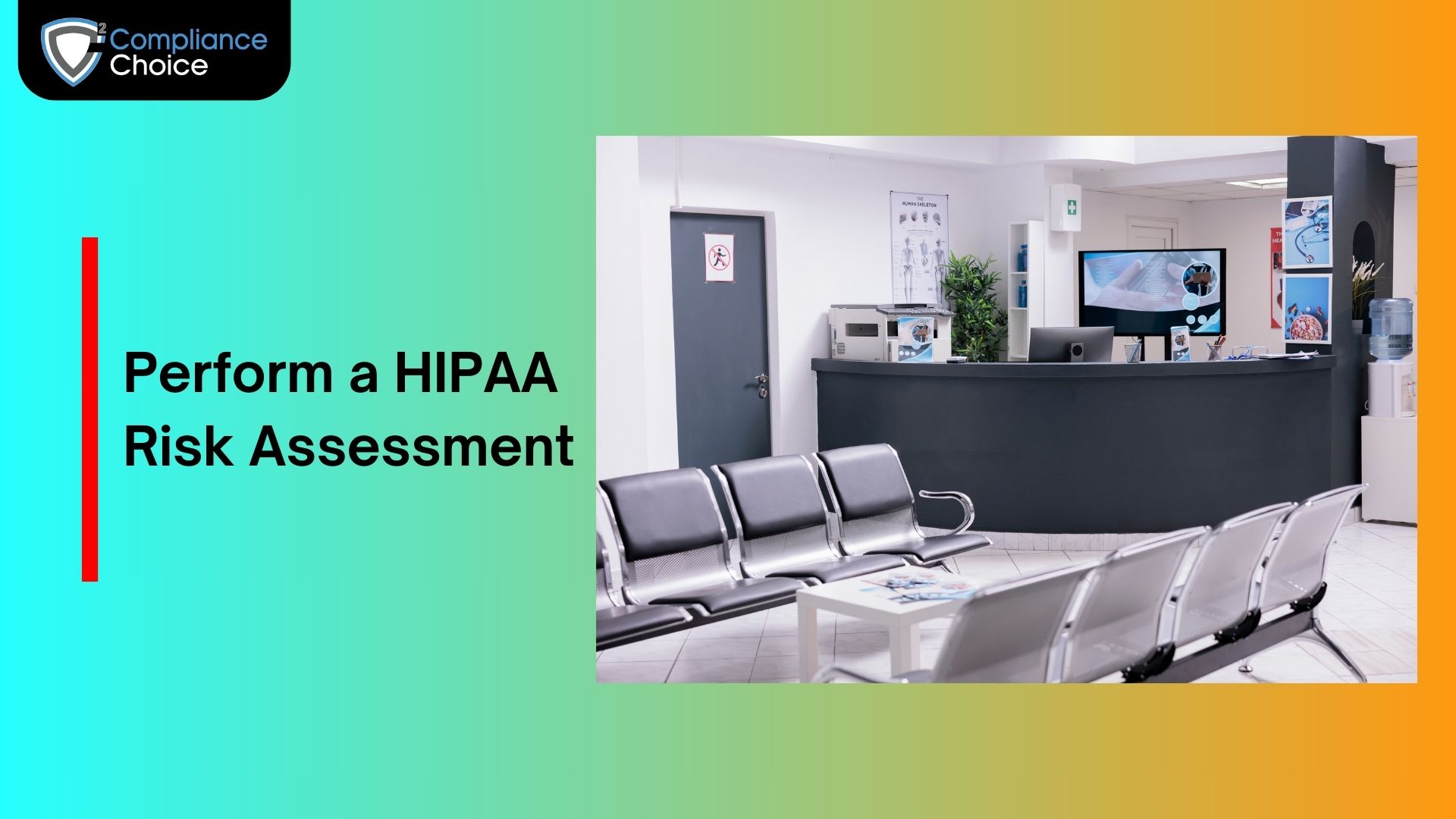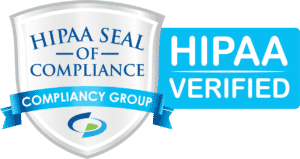In today’s digital healthcare world, protecting patient data isn’t just a good practice—it’s the law. The Health Insurance Portability and Accountability Act (HIPAA) requires even the smallest clinics and private practices to continuously assess risks and ensure the confidentiality, integrity, and availability of the data they create, maintain, use, or transmit. There is always a risk of breaches and audits, making a HIPAA risk assessment a crucial step in identifying vulnerabilities, ensuring compliance, and avoiding costly fines. In this article, we’ll explore the importance of HIPAA risk assessments, the consequences of non-compliance, and how small healthcare providers can effectively implement them.
What is a HIPAA Risk Assessment?
A HIPAA risk assessment is a comprehensive evaluation of your practice’s security policies, procedures, and technology to identify vulnerabilities that could lead to unauthorized access or exposure of Protected Health Information (PHI). The HIPAA Security Rule mandates all covered entities, including small medical practices, to conduct regular risk assessments to evaluate their administrative, physical, and technical safeguards. This process ensures that your practice has the necessary measures in place to secure patient data and mitigate security risks.
Key Components of a HIPAA Risk Assessment
- Identify PHI – Determine where PHI is stored, received, and transmitted within your practice.
- Recognize Potential Threats – Assess risks like cyberattacks, unauthorized access, or accidental exposure of patient data.
- Analyze Current Security Measures – Evaluate existing policies, procedures, and technologies used to protect PHI.
- Determine the Level of Risk – Assign risk levels to identified threats based on their likelihood and potential impact.
- Develop and Implement a Risk Management Plan – Create strategies to mitigate risks and improve security measures.
- Regularly Review and Update – HIPAA risk assessments should be an ongoing process, not a one-time task.
Why HIPAA Risk Assessments Are Essential for Small Clinics and Private Practices
Many small clinics mistakenly believe they aren’t a target for cybercriminals or regulatory audits. This false sense of security can have severe consequences. Here’s why performing a HIPAA Risk Assessment in healthcare should be a top priority for every small healthcare provider:
1. Avoid Hefty Fines and Legal Consequences
HIPAA violations can result in significant financial penalties. The Office for Civil Rights (OCR) enforces HIPAA compliance and can impose fines ranging from $100 to $50,000 per violation, with an annual maximum of $1.5 million.
Common violations leading to fines include:
- Failure to conduct a risk assessment
- Improper handling of PHI
- Insufficient cybersecurity measures
- Unauthorized access to patient data
For small clinics, even a minor fine can be financially devastating. A comprehensive risk assessment helps ensure compliance, reducing the risk of regulatory action.
2. Protect Against Data Breaches and Cyberattacks
Cybercriminals often target small healthcare providers, assuming these organizations lack strong security measures. Patient data is highly valuable on the black market, making PHI a prime target for hackers.
A HIPAA risk assessment helps identify vulnerabilities, such as:
- Weak passwords and authentication protocols
- Outdated software and security systems
- Insecure networks and devices
- Lack of employee cybersecurity training
By addressing these risks proactively, small practices can significantly reduce the chances of a breach.
3. Build Patient Trust and Maintain Your Reputation
Patients trust Healthcare Compliance Risk Assessment providers to keep their sensitive information confidential. A data breach or HIPAA violation can severely damage a clinic’s reputation, leading to loss of patients.
Performing regular risk assessments demonstrates your commitment to data security and regulatory compliance. This not only protects your business but also strengthens patient confidence in your services.
4. Improve Operational Efficiency
A well-executed HIPAA risk assessment can streamline operations by identifying inefficiencies in how data is stored, accessed, and transmitted. Improving these processes can lead to:
- Faster access to patient records
- Reduced risk of lost or misplaced files
- Enhanced communication between staff members
- Fewer costly security incidents disrupting operations
5. Prepare for OCR Audits and Investigations
The OCR conducts random audits and investigates complaints related to HIPAA violations. Small clinics that fail to perform risk assessments may struggle to demonstrate compliance during an audit.
Regularly conducting risk assessments ensures that your practice is well-prepared in the event of an audit or security incident.
How to Conduct a HIPAA Risk Assessment for Small Clinics and Private Practices
Conducting a HIPAA risk assessment may seem daunting, but breaking it down into manageable steps can make it easier to implement. Here’s a step-by-step guide to get your practice started:
Step 1: Identify and Document PHI
Map out where PHI is stored, accessed, and transmitted within your practice. This includes:
- Electronic health records (EHR)
- Emails containing patient information
- Billing systems
- Paper records and files
- Medical devices that store patient data
Step 2: Assess Potential Threats and Vulnerabilities
Identify potential security threats such as:
- Cyberattacks (malware, phishing, ransomware)
- Insider threats (employee negligence or malicious intent)
- Physical security risks (unauthorized access to records)
- Data loss due to system failures or natural disasters
Step 3: Evaluate Current Security Measures
Analyze your existing security protocols, including:
- Password policies and authentication controls
- Encryption of data at rest and in transit
- Firewalls and antivirus software
- Employee training programs on HIPAA compliance
Step 4: Determine Risk Levels
Assign a risk level to each identified threat based on its likelihood and potential impact. This helps prioritize security measures, focusing on the most critical risks first.
Step 5: Develop a Risk Mitigation Plan
Create a plan to address identified vulnerabilities. This may include:
- Implementing stronger access controls
- Updating software and security systems
- Conducting regular employee training on data protection
- Establishing backup and disaster recovery plans
Step 6: Monitor and Update Regularly
HIPAA compliance is an ongoing process. Regularly review and update your risk assessment to adapt to new threats and technological advancements. Annual assessments are recommended, but more frequent reviews may be necessary in response to security incidents or changes in your practice.
Compliance Choice: Your Partner in HIPAA Risk Assessments
HIPAA compliance can be complex, but you don’t have to navigate it alone. Compliance Choice provides expert guidance to help small clinics and private practices perform comprehensive HIPAA risk assessments. Our services include:
- Detailed Risk Analysis – Identifying vulnerabilities and assessing compliance gaps
- Customized Security Plans – Tailored strategies to enhance your data protection efforts
- Employee Training – Educating staff on HIPAA requirements and best practices
- Ongoing Compliance Support – Ensuring your practice stays up to date with evolving regulations
By partnering with Compliance Choice, you can ensure that your practice remains secure, compliant, and prepared for any audits or cybersecurity threats.
Conclusion
HIPAA compliance is not optional; it’s a necessity for small clinics and private practices. Conducting regular HIPAA risk assessments helps protect patient data, avoid costly fines, and maintain trust with your patients. By identifying vulnerabilities and implementing strong security measures, healthcare providers can ensure compliance and focus on delivering quality care. Don’t wait for a security breach to occur—take proactive steps today with a comprehensive HIPAA risk assessment.




